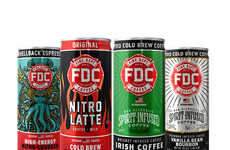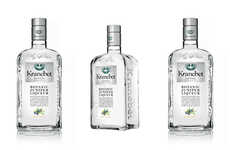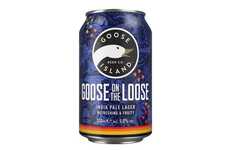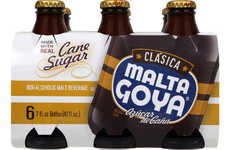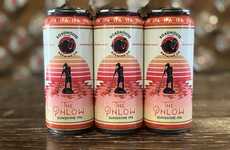



Alcohol brands are experimenting with novel grains such as millet and fonio
Trend - Indie alcohol brands have begun incorporating ancient grains into their formulas. In particular, most of these brands are leveraging West African grains due to their unique and novel flavor profiles. The most popular of these ingredients include teff, millet, fonio, and sorghum.
Insight - Consumers are increasingly searching for better-for-you alcohol options that do not have unhealthy ingredients like sugar, gluten, GMOs, artificial sweeteners, or preservatives. In addition, many of these same consumers are interested in purchasing products that are not harmful to the environment. As an ingredient, Ancient Grains satisfy both these desires. They are rich in phytochemicals, which have numerous health benefits, and they are low-maintenance crops that can be cultivated in harsh climates.
Insight - Consumers are increasingly searching for better-for-you alcohol options that do not have unhealthy ingredients like sugar, gluten, GMOs, artificial sweeteners, or preservatives. In addition, many of these same consumers are interested in purchasing products that are not harmful to the environment. As an ingredient, Ancient Grains satisfy both these desires. They are rich in phytochemicals, which have numerous health benefits, and they are low-maintenance crops that can be cultivated in harsh climates.
Workshop Question - How could your brand appeal to consumers' desire to protect their planet and lead healthier lives?
Trend Themes
1. Ancient Grains - Indie alcohol brands and food companies are experimenting with the use of ancient grains like fonio and millet to create new flavors and appeal to consumers seeking better-for-you products.
2. Collaborative Beverages - Companies and brands are collaborating with musicians and artists to create novel alcohol products that leverage the popularity of these celebrities and their unique brand identity.
3. Alternative Aged Spirits - Distilleries are creating and blending unique spirits that merge new and old techniques, often relying on ancient grains and new aging methods to create new flavor profiles.
Industry Implications
1. Food & Beverage - The food and beverage industry is responding to consumer demands for better-for-you and environmentally-sustainable products that use unique, novel ingredients.
2. Entertainment - The entertainment industry is increasingly collaborating with brands to create new products that leverage the popularity of celebrities and their associated brand identity to create unique and compelling products.
3. Spirits & Distilleries - Distilleries and spirits companies are leveraging unique ingredients and blending techniques to create new flavor profiles that appeal to consumers who are looking for alternatives to traditional spirits.











